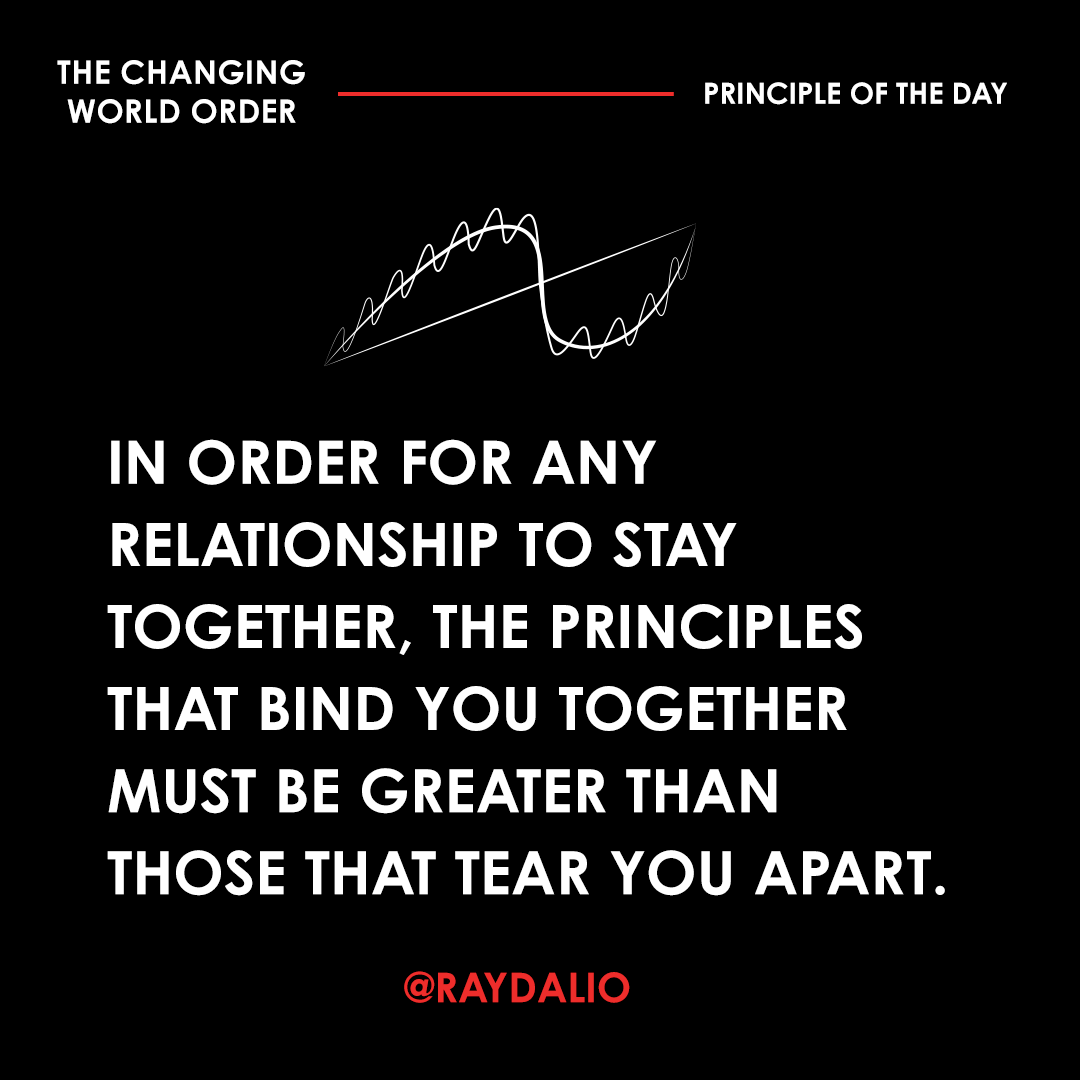
If they choose to have a primarily win-win cooperative-competitive relationship, they must take into consideration what is really important to the other and try to give it to them in exchange for them reciprocating. (1/6) 

In that type of win-win relationship, they can have tough negotiations done with respect and consideration, competing like two friendly merchants at a bazaar or two friendly teams at the Olympics. (2/6)
If they choose to have a lose-lose mutually threatening relationship they will primarily think about how they can hurt the other in the hope of forcing the other into a position of fear in order to get what they want. (3/6)
In that type of lose-lose relationship they will have more destructive wars than productive exchanges. (4/6)
Having win-win relationships is obviously better than having lose-lose relationships, but they are often very difficult to have, which brings me to the prisoner’s dilemma dynamic. (5/6)
To read more principles about what makes empires rise and decline over time, see linkedin.com/pulse/archetyp… (6/6)
• • •
Missing some Tweet in this thread? You can try to
force a refresh








